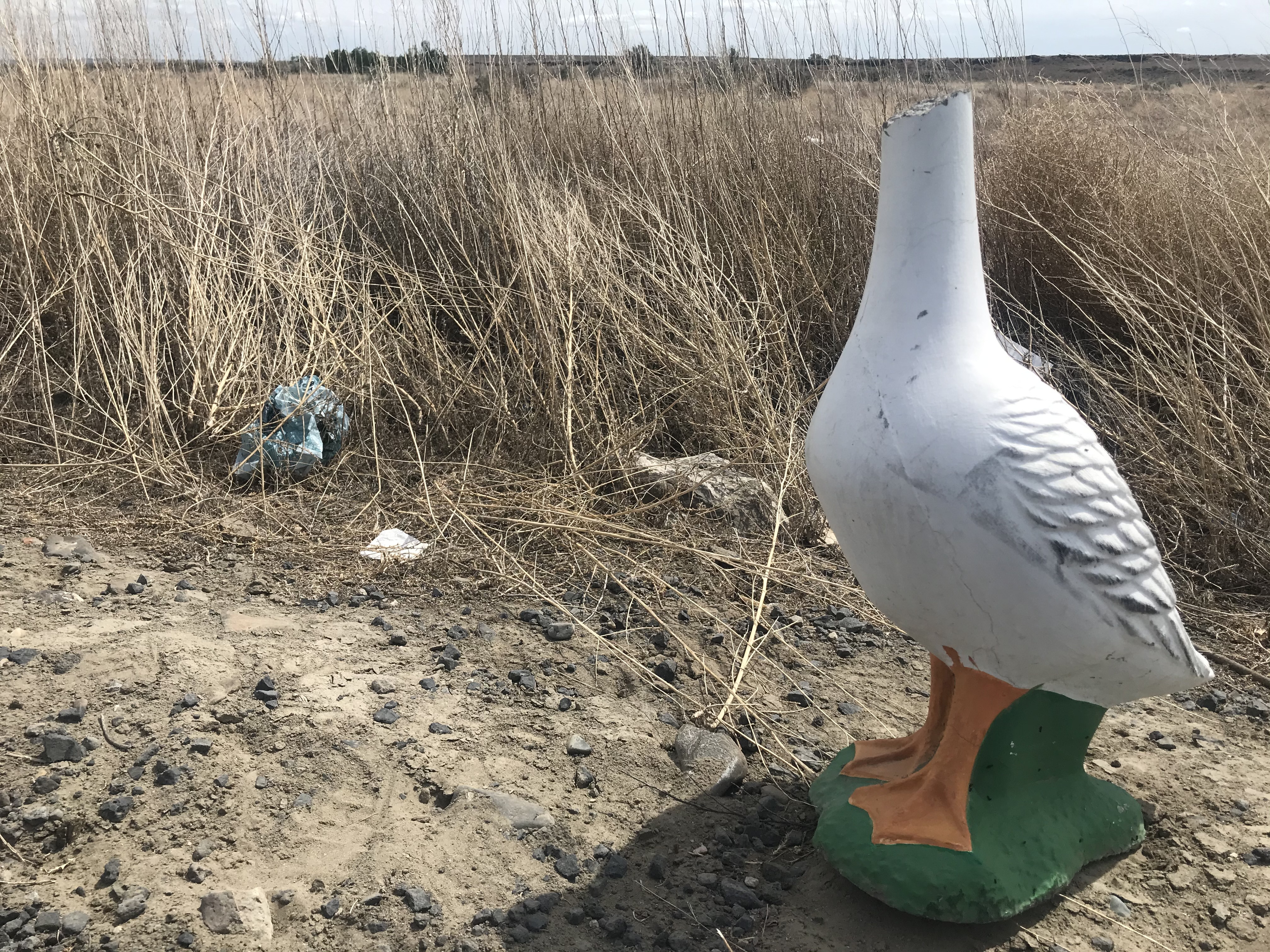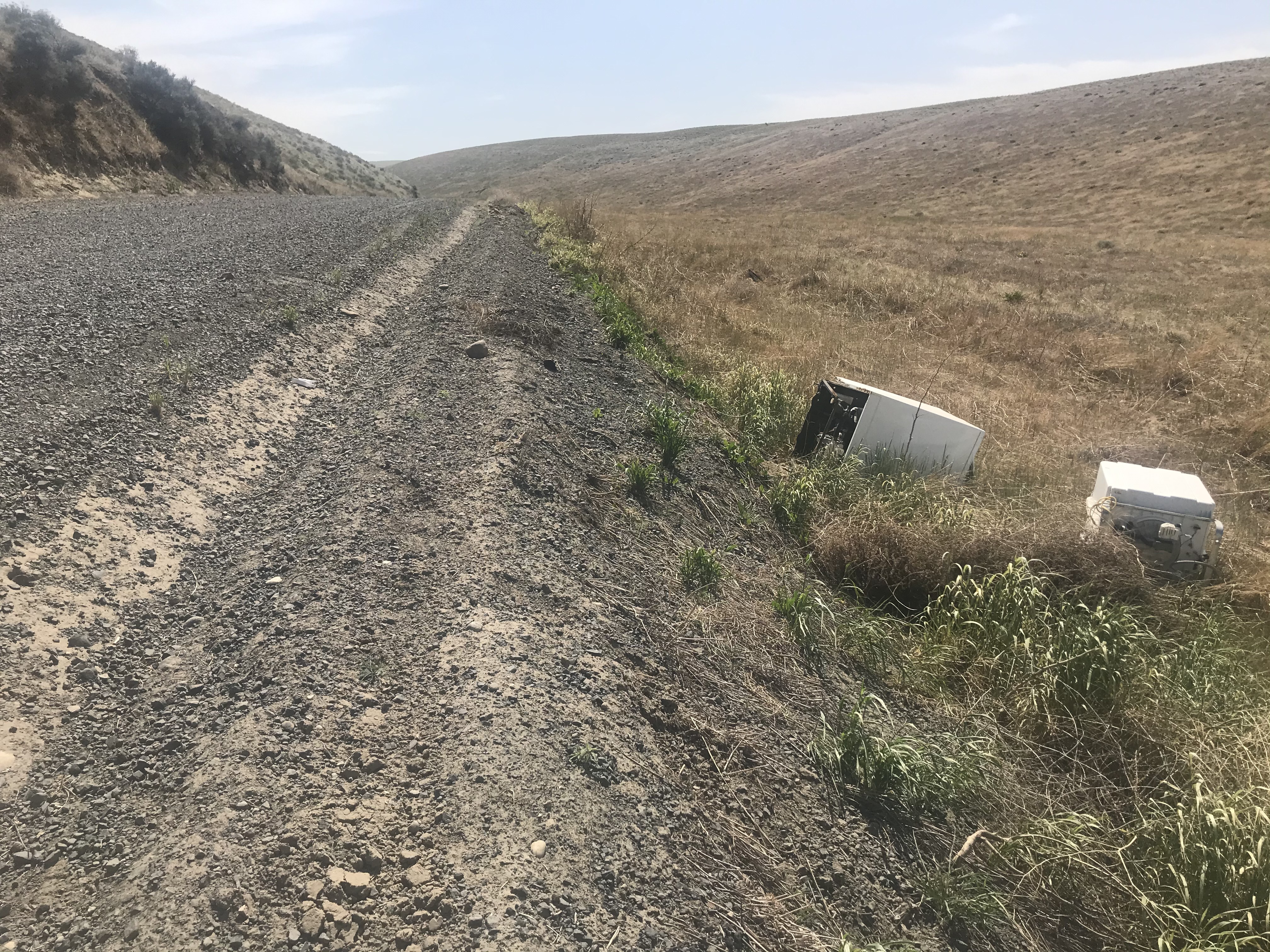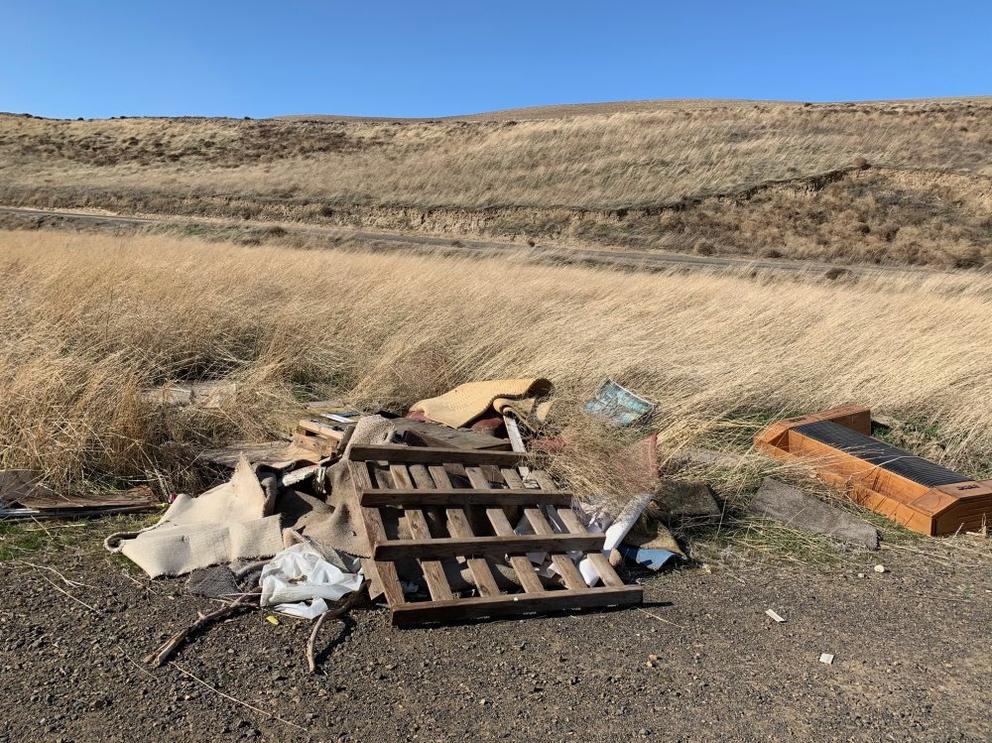Mountain biker Mike Robinson has worked with teams of volunteers for years to clean up these foothills — and it has been successful.
Until the coronavirus pandemic.

“Most of it is building materials and yard cleanup. Every now and then you’ll have a big screen TV,” Robinson said. “It’s frustrating, but it’s one-tenth of what it was.”
Nearly 10 years ago, Robinson and some of his off-road cycling friends couldn’t stand the trash. Usually it was fairly hidden behind sagebrush berms. They gathered volunteers to help with cleanup.
“We just said, ‘This is wrong.’ Every time we went riding somewhere, there was more garbage,” he said.
Since the state's “Stay Home. Stay Healthy” measures closed landfills and most waste transfer stations, Robinson says he’s seen an uptick of people tossing junk just off the side of the road, afraid they’ll get caught if they spend the time to hide it. Others might be worried about dumping fees after having lost jobs or hours at work.
“Once they find a place where they can dump and not be caught, then they start telling their friends and family, and they get everybody dumping out there because they know they’re being watched in other places,” he said.
With spring cleaning and an abundance of restless hands, Robinson said right now is the “worst time” for transfer stations to be closed.
That’s all in line with what the Washington State Department of Transportation has seen. In a blog post, officials say they’re seeing a “disturbing rise” of illegal dumping on roadways and at rest areas.
Highway rest-area dumpsters have been filled to the brim. Recently, department employees hauled two truckloads of appliances, scrap metal and other junk from the side of State Highway 225, outside Benton City.
“Compounding matters, many of our crews are working from home to slow the spread of the coronavirus. We’ve also suspended our Adopt A Highway volunteer program due to coronavirus concerns — so now is the worst possible time to see an uptick in illegal dumping,” the blog post stated.

The Washington Department of Ecology has also seen an increase in hazardous waste dump sites, with normal waste collection sites closed. Abandoned buckets showed up at Green River Gorge State Park.
If you see unknown chemicals on the side of the road, don’t touch them, said Ecology spokesperson Ty Keltner.
“Nobody wants to get their hands in oil or paint or some other unknown chemical,” Keltner said. “That could have all kinds of bad consequences.”
Instead, report chemicals to the department’s website. You can also call 1-800-OILS911.
“Any amount [of hazardous materials] is a threat to the environment and a threat to people. Big or small, make sure it’s disposed of properly,” Keltner said.
Officials ask that you don’t leave hazardous waste or other unwanted materials on the roadsides or anywhere else.
Instead, store items safely — in your garage or someplace where it won’t be spilled and that’s away from children and pets. Then, dispose of it properly and legally, once collection sites reopen.
This story was first published on Northwest Public Broadcasting on May 1, 2020.



